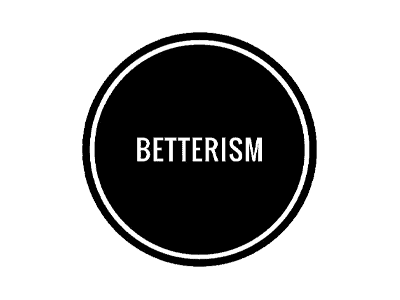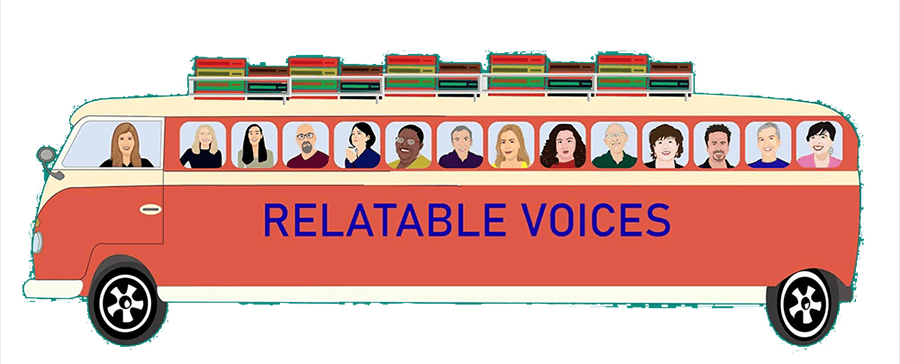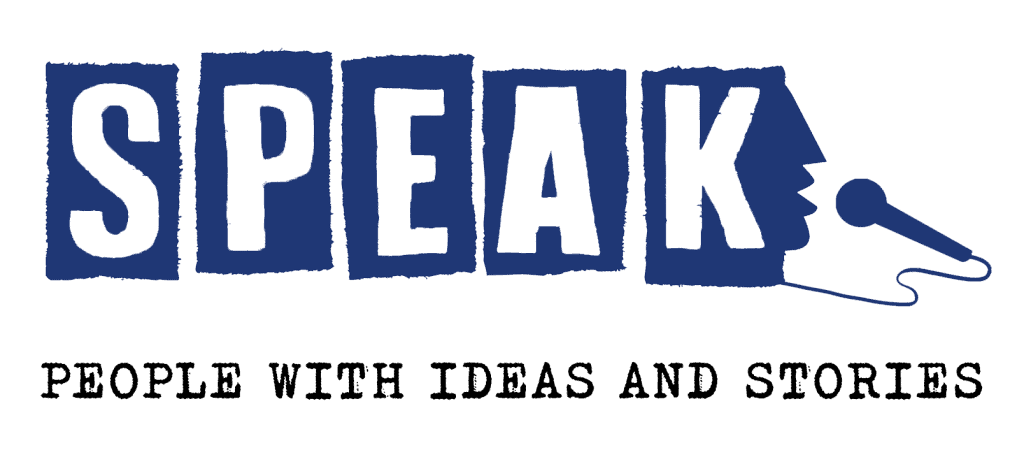Imagine stepping into a caregiving role with the same clarity and grace you’d bring to your most cherished relationships. Mike Spillman, an international motivational speaker, shares that family caregiving—especially around the holidays—often feels overwhelming, with emotions running high and patience running thin. But Mike believes it doesn’t have to drain you. With his “DIRRT method,” which is applicable to any relationship, you can transform the experience for yourself and the loved one you’re caring for. It starts with a clear decision on what you want to accomplish, then identify the roadblocks in your way. Remove those obstacles, and replace them with support that moves you forward. Transformation isn’t instant, but as Mike explains, you’ll feel it as you learn to care with love and self-respect, creating a lasting positive impact for you and those you hold dear. Mike’s mission is to save 100 marriages before the end of 2025. It’s easy to see how caregiving and rational problem-solving make a good pair.
About Our Guest:
Mike Spillman has been involved in the Personal Development arena for 40+ years helping others grasp the significance of a POSITIVE mindset in all areas of life.
He is an International Speaker and podcaster having published over 1,100 podcasts as well as blog articles. He has developed a 5-Step program called “The D.I.R.R.T. Method” that can lead others to success in ANY area of their life upon implementation.
Mike’s personal goal is this: “To bring HAPPINESS, STABILITY and PURPOSE into the lives of others.”
Contact Mike Spillman at: [email protected]
About Me:
I have cared for many family members across the life span, experiencing the joys and challenges of child-rearing, the poignance of caring for parents, friends, and elder partners. I realized that I could not handle the stress of family caregiving 24/7/365. It was time for a new approach to caring. My health and happiness were slipping away. This is how Think to Thrive for Caregivers evolved. Let your mind meet your heart so you don’t lose track of your life.
Connect with Me:
https://www.deborahgreenhut.com/
https://www.linkedin.com/in/deborahgreenhut01/
Thanks for listening!
Thanks so much for listening to our podcast! If you enjoyed this episode and think that others could benefit from listening, please share it using the social media buttons on this page.
Do you have some feedback or questions about this episode? Leave a comment in the section below!
Subscribe to the podcast
If you would like to get automatic updates of new podcast episodes, you can subscribe to the podcast on Apple Podcasts or Stitcher. You can also subscribe in your favorite podcast app.
Leave us an Apple Podcasts review
Ratings and reviews from our listeners are extremely valuable to us and greatly appreciated. They help our podcast rank higher on Apple Podcasts, which exposes our show to more awesome listeners like you. If you have a minute, please leave an honest review on Apple Podcasts.
Transcript
You're welcome, Mike, so let's get right into it. You know you and I have both weathered the storm of family caregiving while married. So let's start there. Do you have any pointers for couples who commit to caring for a family member during their disability, aging or illness? Yeah.
Mike Spillman:And let me do and let me just say it was, it was my wife with her parents. Now her brother was helping as well, but she she was probably one of the main parts of that process. And I am thankful that we were living where we were, that we were able to do that out of necessity. She retired from her job because it was starting to become so time consuming to be able to do that. And so, you know, I can speak from some of the things that I observe, but also, let me just say from from the spouse side, that maybe it is not your parents be patient and be loving. You know, it's easy. It is easy for I was using myself for an example. It's easy. It would have been easy for me to get impatient, or you're spending too much time over there, you know? What about spending time with me? What about, listen, it is just a fact, especially when you're dealing with with elderly parents, and it's kind of blunt to say it sometimes, but that is not going to be a situation that's going to last forever. We don't have any idea how long it's going to last, but we need to be patient. The person, the person that is doing the caregiving, needs as much grace and patience as we can give. But also the person that's doing the caregiving, they need to give as much grace and patience to themselves. Because that's one thing I know we'll be discussing, is, is, you know, there there's so much stress and strain that they put on themselves, lots of times, guilt that they feel and again, I know we're going to get into all of that, but I probably my number one pointer would be, all the way around, is, is grace and patience with each other, and grace and patience with yourself, especially if you're the one that's the main one doing the care. Giving?
Deborah Greenhut:Yeah, I think you mentioned a couple of the highlights there, particularly guilt, because once you become a caregiver, you're being pulled in many different directions. And even if you your kids have left the nest and so on, it's still a complicated matter to balance all of those different things that have to go on. Some caregivers, actually those who live in with the person they're caring for, possibly managing as many as 20 different systems, from the person's nutrition to their medical activities and so on. And it's difficult to remain that delightful social creature that you once were. So having a spouse who is patient, I think, is pretty central to the survival both of the marriage and also the quality of care that that person is able to give. So you don't want to put good money before bad, as they say, although everybody's getting paid to do caregiving right number, but you don't want to undermine the efforts of someone by making it harder to do. So that's a very important thing. Now I think that leads us into the method that you use with couples that I think is also beneficial for caregivers. So I know it's called the dirt method. Could you enlighten us about what those letters really mean? Absolutely,
Mike Spillman:Deborah. And it actually applies not just to couples. It can be applied to this situation. We're done. It can be applied to literally any situation. Very short story, my oldest grandson spent a week with us this summer. He's 10. I think I'd have to ask my wife, she's the one that keeps up with all that stuff. But just long story short, he we went out and we were doing go karts. He had to mishap and upset him, and he was managed the worst day ever and all this kind of stuff. So I just sat down with him and actually went through the dirt method that I'm going to describe very briefly. And after I went over it with him, he was ready to go again. And he said, Papa, that that actually applies to everything. I said, Absolutely. So what is it? What is an acrostic? D, I, R, R t, so it's 2r the D. It's really the foundation for anything that we're talking about. The D is decision. You know, you have to decide whatever area we're talking about, whether it's couples and relationships, whether it's caregiving, whether it's a job, how you want to, you know, perform at work, your relationship with your co workers. Whatever it is, you have to make a decision. You know, what is it I want to accomplish? Where is it I want to go with this? What you know, you can label that however you want to the I is you need to identify any roadblocks, anything that's going to keep you from accomplishing what you have decided to do okay? The first R is then you have to remove those roadblocks. The second R is then you have to replace them with something that's not going to hold you back, but replace them with something that's going to help move you forward. And that definitely applies to what we're talking about with caregiving. And if I'll try to remember where that comes in at as we're talking and then the T doesn't mean it's a boom, boom, boom. It's done. But through the process, more than likely you're going to have to start over, you're going to have to start over, you're going to start over. But in the process, transformation begins to take place, to take you from where you were to where it is that you want to be. So that's the dirt method. And again, it can be applied in any situation, and it can be applied as well as what we're talking about with caregiving. Yeah,
Deborah Greenhut:that's lovely, as you know, I try to support the idea of rational caregiving rather than emotional caregiving, not that your feelings aren't in there, and not that you shouldn't love your loved one, but if love is the overwhelming thought, you're probably going to overextend yourself, right? Yeah, do things that might take away from your ability to be a rational caregiver. So Can, can we focus a little bit now on that decision? I love that concept of making a rational decision before you do anything. So Tell, tell me how that operates, or get, you know, let's talk about that some more.
Mike Spillman:Well, you know, sometimes, as we talk about a decision, and you're talking about rational, sometimes we make an irrational decision. Okay, and especially as it comes to caregiving, again, we have that attachment. If it's your parents, it's easy for us to make a statement to our parents, I promise. I will take care of you. I will never allow you to be put in a nursing home. I will never allow you to be taken I will be here every day. I will be here by your side. And we make that emotional decision, right, a decision in the heat of emotion, which that by itself, you know, tells us, lots of times, decisions that are made in the midst of emotion, usually are not very solid decisions. And then, you know, we can get into this later if you want to, but then lots of times that leads to the guilt that we talked about because we're not able to do what it is that we said to them. So you know, if we have the ability, and by the way, there. Nothing wrong if we make that decision. Because those some people may be listening to this. They they did. They stated that to their to their parents, or whoever it is, it may be a child, whatever it is, they may have made that decision, and things have gotten to the point that they need help. It's okay to understand, you know what? I probably made a statement and a decision that wasn't rational, that was based on emotion. There's nothing wrong with them stepping back. That's why I said lots of times, you have to go back, and you have to go back. You may have to go back and visit that decision. And now maybe more rationally, what you decide is, I'm going to do everything within my power to make sure that you have the best care possible, that that takes you off the hook some, and it still gives that commitment that you know you've got, that commitment that you've made to yourself, but you're also making to your parents, or whoever it is that you're taking care of
Deborah Greenhut:that that's very interesting, because I know I struggled with that a lot, and I was speaking with a women's group last weekend about time management, and afterwards, several came up and confided in me, I promised my spouse or I promised my mother I would never, ever do that, never put them in a home. And I, what I said to them was, you know, circumstances change. The conditions under which you made that promise no longer exist when a person's condition deteriorates, perhaps, from dementia. Sometimes it's more than you can handle, right? Why? Why? Why would you keep doing the same thing that's not producing a good result for you? You just said you couldn't do it anymore, so you got to make a change. So I love that, that you focus on that, and it's hard, I think sometimes to do all that for thinking we try to do about decisions. Say, Well, if this happened, x, y, z, and we go through all the possible variables, but we don't know what the future is going to Right, absolutely. Yeah. So is there any any guidance in particular that you give people about making decisions, or how do you evaluate whether they're good decisions? Well,
Mike Spillman:and again, you have to try to think rational. Okay, you know, one, one that always gets me is, is, is, you know, I've seen it for years. I've seen people do it. You see it a lot on TV shows and movies where maybe a parent makes a promise to their child, the child says, do you promise? You know that you're never going to die, or you're never going, Oh, I promise. Well, they're making a promise they can't keep, and we have to be careful with that and understand that sometimes saying, Oh yes, I promise, which, again, is a commitment to somebody. And change that to I will always, you know, be here for you as long as I can, or I'll always make sure I do the best for you, whatever it is like that, we have to be careful with making those, those broad promises, those broad commitments to people with that. You know, when we get married, oh, my goodness, you know, and we're, oh, whatever thing gets, we're so in love, you know, no, I promise you, and we make a lot of promises that again, things change and we have to adapt. And, you know, and you know this, I mean, after a while, sometimes couples are like, man, it's not like it was when we first got married. Well, of course, it's not. The honeymoon is over. You're living together now, and you're you're seeing everyday life, and we just have to adapt sometimes. Deborah, if I can, let me just say this too, is in applying some of these other steps, or the dirt method. You know, many times with that decision is, you know, we have to be willing in this caregiving to identify the roadblocks. And this is what we were talking about. Sometimes things progress to where we're not really able to do the best for them, to give them the best we need to be open and honest with ourselves. And again, don't, don't guilt yourself for being open and honest and identifying and saying, You know what, as much as I want my wife is five foot two. I don't know how she was doing a lot of the physical things that she was doing, especially when her mom got bedridden and and so we have to identify a point of saying, I can't do this anymore. Identify a roadblock. I can't do this anymore. I need some help. So then we have to be willing to remove that roadblock. We have to be honest and understand this doesn't take away our love and our commitment to that person, but I have to remove that roadblock and replace it with something that's going to help propel me and and so it wasn't because she was stubborn, but they did finally call in a hospice which, which hospice is not like what it used to be back in the day. Hospice used to be just basically a death, a death signature of if hospice comes in that means they're going to die very soon. But now hospice brings in so much help. You know, home health came in, all of this came in that helped relieve her and her brother of so much that they were doing that they could no longer do. So we have to be willing to understand again, that decision not. Needs to be adaptive, and we need to, again, be open and honest and be willing to identify to ourselves. I can't do this anymore. I need to be able to reach out, you know, and again, part of that commitment to I'm going to do the best for you is many times. That means I've got to go beyond myself, and I gotta get some help.
Deborah Greenhut:That's such a wise arc that you have in this process, because it ends with tea for transformation. But the whole time, what we're talking about is evolving toward the best new self that you can find, right? Yeah, so, and it's a process, you know, I would imagine. I don't know if butterflies think, but maybe they regret leaving the caterpillar behind, or some other stage, or I don't know if they remember at all, but we see that, and we start thinking about what the different stages mean. And all of our nostalgia for how it used to be is often clouding our memories. So it's difficult to decide in a rational way, and yet, understanding that life is really about constantly transforming like that butterfly is, I think, helpful to look at a bigger picture. You know, if we're in the middle of one of these family caregiving emergencies, it's really difficult to see around it to well, six weeks from now, or six years from now, what will I feel like if I'm still doing all
Mike Spillman:right? Yeah, yeah. And that's, you know, and you've probably seen this experience yourself, is if somebody is in the midst of, they're still trying to do it all on their own, that can actually create anger, resentment, and it can cause where your relationship with your loved one kind of gets damaged a little bit. And what you find is, if you're willing to let go and bring in the help that is needed many times, it creates a better situation for you and that loved one, because a lot of that is taking off of you and where you were again, physically, just wearing yourself out. Now there's somebody else is doing a lot of that, and now you have more of the opportunity that, if your parents are still coherent and able to talk and visit, you're able to actually spend more time doing those things and have that better relationship. I know I saw that with my wife. She didn't didn't come home angry, but she was just so worn out from the physical aspects of it. When when hospice came in with home health care again, just being willing to allow somebody else to come in, it was so much more enjoyable for her. She still had things she had to do, but she was able to spend more time with both her mom and her dad. Her mom was bedridden before her dad was but he still was needing a lot of help, so she was having to try to split that time between them, but she was able to spend a lot more time just sitting and visiting with them, talking about memories, and it was actually a much more pleasant experience. So if you're in the midst of it, don't be afraid to reach out, because it's kind of what you just said. You know, it's six months from now, six years from now, where am I going to be in this? Am I going to be able to be in this? So you gotta, you gotta, you know, caregiving is not just for the one you're taking care of, but it's also for yourself. You have to take care of yourself in the process as well.
Deborah Greenhut:So glad you said that. That's why I like to call it share, giving, yeah, reach out to as many sources of help as as you can. And I was fortunate. The last time I was a family caregiver for for a dear friend, I had the advantage of talking with a geriatric social worker who agrees very much with what all of those things you said, and the idea that I could be more of the friend to the friend if I were not trying to do everything else. And this, this social worker, tried to convince my friend of that, and my friend just didn't want anyone else to care for him. So it became a little bit of a battle, but I know in the long run, it was better that I made some decisions to take care of myself too, which meant stepping away from some of it and asking other people to to take on the responsibility. So So we did the arc of things, from the decision to the transformation. What do you want to say about the middle?
Mike Spillman:Well, again, you know, as we're talking about this process, right? You know, identify, you know, be willing to identify the roadblocks again, as you're going through this, be honest with yourself. We so many times we get caught up, you know, in this, especially in caregiving, and we feel guilty again, if we start, if we start experiencing the anger, or if we start coming home, either by ourselves, and we're saying it out loud, yelling, or, you know, or coming home to our spouse and we're complaining about taking care of your mom and your you know, your loved one, whoever it is, and we feel guilty, but, but we need to identify, you know, the roadblock? Be honest. A lot of times, the roadblock is us. Okay, right? And that's when I made this commitment, I made this decision, that I told them I would never, ever, ever let this happen. Well, again, we have to revisit that, adapt and identify that lots of times we're the roadblock, and we need to open up, you know? We need to remove that roadblock, right? And we need to replace it with something that's going to now help move us forward. So again, it's it's understanding that I can't do this all by myself. There's nothing wrong with saying that. There's nothing wrong with admitting that I'm not, I'm not loving my my person that I'm caring for any less. I'm actually showing more love, my understanding the best thing for them is for me to remove myself from, don't try to do it all and replace it with, again, you know, outsourcing, like you said, the share, giving, getting getting in the help that you need to help take care and then that that really helps in the transformation of the caregiving, but also helps in the transformation with you and how you feel when you're doing the caregiving. And I believe it also helps in the transformation of that relationship with that person that you are caring for. Again, going from from just you being angry and tired and worn out, and you know, to where now again, you have more of a chance to visit. And my wife cherished the times that she was able just to sit and just visit when she because before she was just constantly busy the whole time she was there and didn't really have a time to do that. And it's time she cherishes now, especially since they've been gone, those those special times, you know? And so that's that's kind of the middle of it is, yes, a decision, and there's transformation, but there's things obviously that have to take place in between, and we have to be in no matter what you're applying this to. We have to be honest with ourselves, and, again, be willing to be adaptive in our approach with this, the transformation I know for her, when when the extra help came in, was just amazing for me to watch. And again, she didn't come home screaming and hollered at me, but she came home many times frustrated. She came home many times crying because she was frustrated with herself for feeling the way that she felt, that that helped transform all of that to where, yeah, she was still tired many times, yes, she was still emotional many times, because this was her mom and dad, you know, but she was so thankful that she was now transformed to where she had the chance and time to spend that quality time with them as much as possible. That's
Deborah Greenhut:a great story about an and a reflection on what it meant. And of course, the irony is, if you don't take care of yourself, you may not be there for the long haul. Absolutely, many people become too ill to do it, or they don't, don't last I had in one caregiving experience, my mom had passed away, and I went to take care of my dad. And the shock of it was, though I thought I was in for the long haul, I really didn't know what to expect. He had a very bad heart, and lots of other things were going on, and I focused on doing all these things. You know, I was going to take care of everything for my dad. And unfortunately, two and a half months after my mother, he died of Broken heart syndrome. There I was with all these things that didn't mean anything to me anymore, and I couldn't spend as much time with him as I had really hoped to do. So balance it, you know, I think that's what the idea of a rational decision. What can I do? What do I want to do here? What's important to me is so powerful.
Mike Spillman:Again, irrational, because our emotions, what you know, just pull us to what we want, and again, sometimes what we want and the rational aspect Don't, don't go together. But we again, we have to understand that our commitment has to be what is best for them and best for me in the process as well. We don't need to feel bad about that. I'm saying what's best for me, because first and foremost, it's what's best for them, and as a result, it is, you know, again, what's best for me in that process. Can I throw in another little twist that sometimes we deal with and me and you didn't talk about this, so we may not talk much about it right now, but I know, as people are listening to this is many times too, when there's another family member that is involved in helping, ooh and so, many times there is major conflict, which then just adds to the stress, just adds to that. So, you know, that's another caveat me, and you didn't talk about but I just wanted to address it, because I know a lot of people that are watching this are probably saying, Yeah, but what about when my brother or my sister in law, or this part, what about when, you know, and so again, it just that's, you know, just that is where so much then the decision to get extra help comes in. It may not resolve the issues that you have with that relatives, but it definitely helps ease up a whole lot when you've got some professionals or somebody else coming in to help in the process, I did see that helped a lot, even in that area. Yeah,
Deborah Greenhut:that's incredibly important, because often the caregiver becomes a. Everybody else's servant, including the patient, and that leads to a kind of a disrespect sometimes, oh yeah, decision making, even if they are so close, so close to situation, they must know more about it than other people do. But everybody has an opinion. So, Oh, absolutely. People. People do transform in the process. You can't really stop that if you are, if you step up be a caregiver, and what, what I think both of us are hoping for is a positive transformation that contributes to the quality of the remainder of your life, as well as what it can do for the person that you're caring for. You know it can be enriching or it can be destructive in some way. So so we want the first thing. We want the enrichment there. So I think we come pretty close to the end of our time here today, and I so thank you for giving me this chance to speak with you in more depth about the dirt method, which I'm going to remember for the rest of my life. Thank you. So where can we contact you, Mike, if people want to get in touch about your your project of saving the 100 marriages. Or is there anything else you'd like us to know?
Mike Spillman:from a divorce by the end of:Deborah Greenhut:Thank you so much, Mike, for your wisdom. Today, I'm never going to forget the dirt method, especially the decision part. I think that is crucial when you are doing family caregiving or trying to save your marriage. So it's fundamental, as you said, to just about everything. So I want to thank you, Mike for being here today and listeners caring for and about each other is not just a holiday thing. I hope you decide to do it every day, and when you have some spare time, please share that with someone else. Too. Care for them. Share giving. Let's not keep it a secret.
















